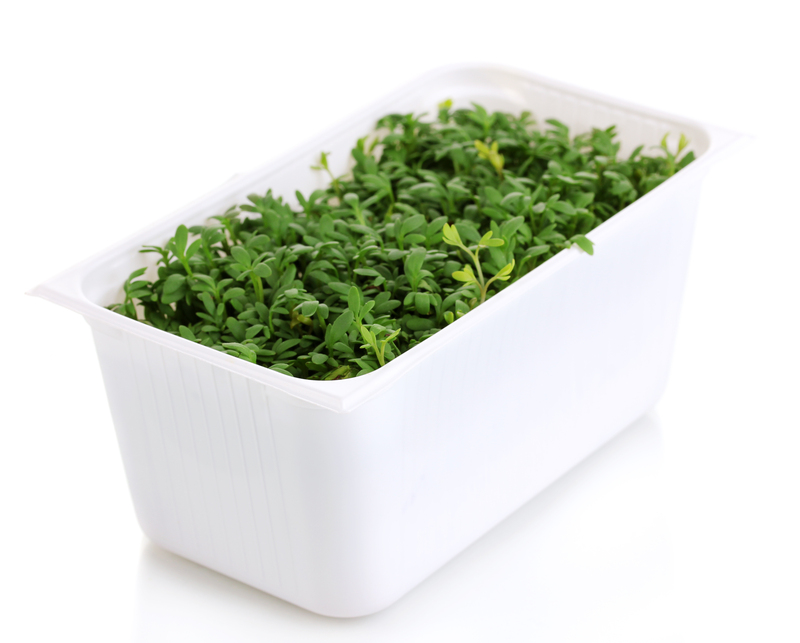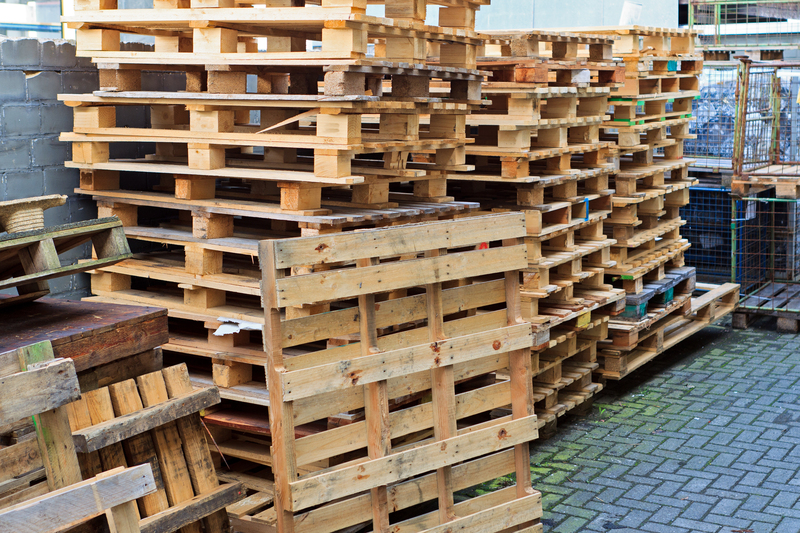Money-Saving Secrets for Disposing of Bulky Waste Items
Disposing of large, bulky waste items can feel overwhelming--both physically and financially. From old furniture to broken appliances, these unsightly and cumbersome objects often pile up in garages and basements, waiting for their final destination. The good news is that budget-friendly ways to handle bulky waste do exist. This comprehensive guide is designed to reveal powerful money-saving secrets for bulk waste disposal, offering solutions for both your wallet and the environment.
Understanding Bulky Waste: What Qualifies?
Before learning how to save money when disposing of large waste, it's crucial to understand what qualifies as bulky waste. Typically, most municipalities classify the following as bulky waste items:
- Furniture (sofas, mattresses, chairs, tables)
- Large household appliances (refrigerators, washing machines, ovens)
- Outdoor equipment (grills, lawnmowers, playground sets)
- Carpets and rugs
- Large electronic devices (TVs, computers, exercise equipment)
- Construction debris (bathtubs, cabinets, doors)
These items typically won't fit in regular curbside bins and are often excluded from standard garbage collection services. Hence, disposal usually comes with special rules or added costs. But with a little research and resourcefulness, you can keep bulky waste disposal costs low--or even eliminate them.

Why Is Disposing of Bulky Waste Expensive?
Bulk waste disposal fees can add up quickly for several reasons:
- Labor-intensive removal: Bulky items are heavy and often require special handling or equipment.
- Special treatments: Certain items, like mattresses or electronics, may need to be processed differently due to safety or environmental hazards.
- Transport costs: Moving large waste to processing facilities can be expensive.
- Landfill fees: Most dumps charge extra for large or non-standard waste.
But don't worry: saving money when disposing of big items is absolutely possible with the right strategies!
The Ultimate List of Money-Saving Tips for Bulky Waste Disposal
1. Understand Local Laws and Free Collection Days
Most towns and cities offer free or discounted bulky waste collection days. These services are often available once or twice a year and are a golden opportunity to dispose of items without extra charges. Simply call your local public works or visit your city's official website to find collection schedules or designated drop-off days.
- Tip: Schedule your cleanout around these dates to avoid paying private haulers.
- Bonus: Municipalities sometimes offer coupons for landfill drop-offs during spring and fall cleanups.
2. Donate Usable Items to Charities or Nonprofits
When items are in good, reusable condition, donating bulky waste to a charity, thrift store, or nonprofit organization can save money and help the community. Many organizations offer free pick-up services for large furniture, electronics, or appliances.
- Contact Goodwill, the Salvation Army, Habitat for Humanity ReStores, or local faith-based organizations.
- Many groups accept appliances, couches, tables, beds, and working electronics.
- Bonus: Donation receipts may offer tax deductions for extra savings.
3. Sell or Give Away Bulky Items Locally
One of the most creative and profitable bulky waste disposal strategies is to sell or give away items online. Platforms such as Facebook Marketplace, Craigslist, Freecycle, and local "Buy Nothing" groups are fantastic matchmaking outlets for used goods.
- Take clear photos and write honest descriptions.
- Offer porch pick-up or curbside collection to minimize hassle on your end.
- Even broken appliances or old furniture can be valuable to DIYers for parts or refurbishing!
4. DIY Dismantling to Reduce Fees
It costs less to dispose of smaller, separated parts than one giant object. Break down items like couches, dressers, or playground sets into compact pieces before hauling to the dump. This can often halve disposal costs, as many facilities charge by total volume or weight.
- Rent or borrow basic tools for dismantling.
- Sort out recyclable material (metal, wood) before dumping.
- Wear gloves and safety goggles; watch out for hidden nails or screws.
5. Use Appliance Buyback and Retailer Recycling Programs
When upgrading electronics or appliances, ask the retailer about take-back programs. Many big chains offer free haul away on delivery or run periodic buyback events for old electronics and white goods.
- Best Buy, Staples, and Home Depot frequently recycle TVs, computers, fridges, and more.
- Check the Environmental Protection Agency's website for certified e-waste drop-off centers near you.
- Some programs pay you or provide store credits for qualifying items.
6. Share Dumpsters or Skip Bins with Neighbors
If you must rent a dumpster or skip bin for bulky waste--it's smart to split costs with neighbors or friends. Coordinate a group cleanout weekend and share a single container. This reduces individual expense considerably, and you may even meet new friends in the process!
- Get written permission from your HOA or landlord if needed.
- Clearly label what can and cannot go in the dumpster.
7. Recycle Metal and Scrap Components for Cash
Metal, electronics, and some appliances are worth real money at scrap yards. Instead of paying fees, you might get paid! Common items with value include:
Look up "scrap metal buyers near me" and compare rates for steel, aluminum, copper, or electronic devices. Many recyclers offer free pickup for large loads.
8. Explore Junk Removal Alternatives
If professional help is needed, choose low-cost junk removal services or community "haul away" events instead of costly one-off pickups. Compare prices, and ask about discounts for first-time customers, seniors, or veterans.
- Some companies charge by weight, others by how much space your junk takes up in a truck. Get multiple quotes!
- Ask your city about neighborhood clean-up events--these periodically offer discounted rates for bulky item pickup.
9. Repurpose, Upcycle, or DIY Projects
Sometimes, the easiest way to save on disposal is to turn bulky waste into something new! Repurposing and upcycling is good for your wallet and the environment. Here are some creative ideas:
- Convert pallets or headboards into garden planters
- Turn an old dresser into a TV console or children's toy storage
- Strip fabric and cushions from couches for pet beds
- Break-down electronics for DIY science or art projects
Look up online tutorials for inspiration, or offer raw materials to local artists and makerspaces.
10. Rent a Truck and Make a Group Dump Run
If you and your neighbors have bulk waste, renting a pickup truck for a joint landfill trip is far cheaper than individual removal fees. Many home improvement stores offer short-term vehicle rentals at reasonable rates. Split fuel and dump charges to maximize savings.
The Environmental Benefits of Responsible Bulky Waste Disposal
Saving money is important, but responsible bulk waste disposal also protects the planet. Here's why:
- Recycling and donating items prevent landfill overflow.
- Hazardous substances in appliances and electronics (like Freon, mercury, or lead) are handled correctly.
- Repurposing reduces the demand for new resources and cuts down on production pollution.
A little extra effort when discarding bulky items can lead to a healthier, more sustainable community--and often net extra savings for you!
Frequently Asked Questions About Money-Saving Bulky Item Disposal
Q: What is the cheapest way to dispose of bulky waste?
A: The cheapest strategy is to use free city pickup days or donation centers. After that, selling or giving items away locally, or recycling materials at scrap yards, cuts costs further.
Q: Are there any hidden costs with bulk waste removal services?
A: Yes, private junk removal and landfill dumps may charge extra for special handling, refrigeration gases, electronics, or exceeding weight/volume limits. Always request clear, itemized estimates before hiring.
Q: Can I leave bulky waste at the curb?
A: Only if your city specifically allows it during designated periods or with prior arrangement. Illegal dumping can incur fines--always check local rules!
Q: How do I dispose of items with hazardous materials?
A: Contact your city's hazardous waste program for options. Many appliances (like fridges, air conditioners) and electronics must go through certified channels for safe, legal disposal.
Q: Is it really worth dismantling items before disposal?
A: Yes! Separating metal, wood, and fabric not only reduces volume and costs at the dump, but can also earn cash at recycling centers or scrap yards.

Summary: Smart Disposal, Big Savings!
Disposing of large or cumbersome items doesn't have to drain your wallet. With these money-saving secrets for getting rid of bulky waste, you can keep cash in your pocket, save time, and support the environment. Here's a recap:
- Leverage free city programs and collection events.
- Donate, sell, or give away good condition items.
- Dismantle and recycle materials for extra savings or profits.
- Share costs and resources with others for group savings.
- Select the right disposal method based on your item and local options.
Whether you're clearing out a garage, moving house, or just decluttering, these proven tips guarantee that bulky waste removal won't break the bank. Start planning your disposal the smart, budget-friendly way--your wallet and the planet will thank you!
Key Takeaways: Save Money While You Clear the Clutter
- Avoid high junk removal fees by using free local and donation services first.
- Dismantle bulky items yourself for easier, cheaper disposal.
- Recycle for profit and coordinate community removal efforts where possible.
- Always consult local guidelines to keep your disposal legal and efficient.
